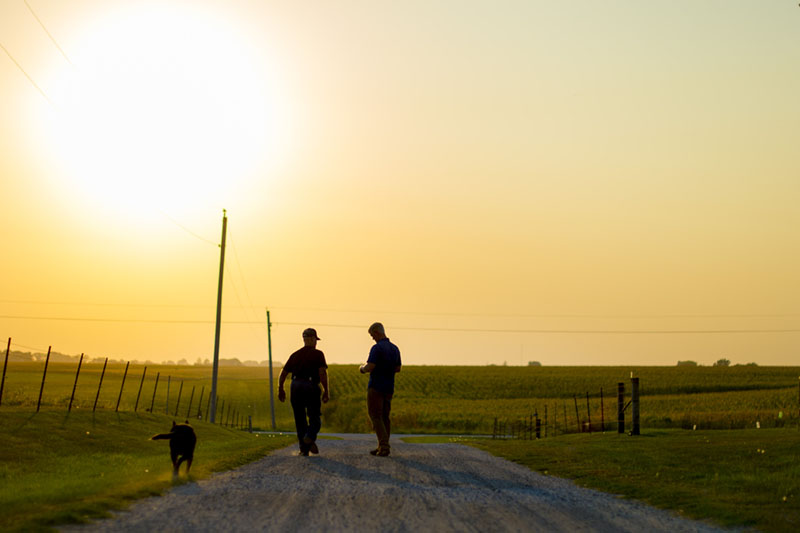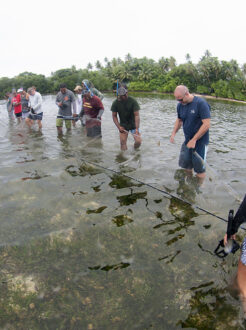A theme throughout this publication is that social sustainability–the human side of agriculture–extends beyond the quality of life of individual farmers and their families. While it’s of course critical to find ways we can improve our own quality of life, it’s equally important to take a broader view by recognizing the challenges faced by other people who are part of our food system. When we look for ways we can support and value each other, we help create healthier, more resilient agricultural communities that benefit everybody.

In many ways, the personal and social issues outlined here are within our control as individuals, for both farmers and agricultural educators. This is particularly true when we work with our peers, employees and community members to solve problems and create opportunities together. A few steps toward taking action include:
- Personal reflection. Just as you might test your soils, monitor your fields for signs of pests or review your finances on a regular basis, it’s important that you take the time to reflect on how issues of personal and social sustainability relate to your own life and farm operation. Along with considering your own situation, reflect on your employees and your position in your community–in what ways can you meaningfully support others and receive the support you need?
- Engagement with resources and people. Also like other aspects of farming, you’ll likely find there are existing resources on the topics most relevant to you, as well as local farmers and agricultural service providers with helpful expertise. At the same time, there are probably other farmers in your area who are facing some of the same challenges as you and are equally interested in solutions. Take the time to identify and engage with the people and resources that can be of help to you. Some organizations and resources are listed at the end of this publication.
- An equity and inclusion mindset. There’s something in it for all of us when we include the voices and value the contributions of everybody engaged in the food system, starting with those in our local community. Embracing differences and working more closely with unlikely partners can lead to new ideas and meaningful collaborations. Rather than looking at other farmers as competitors or thinking their situation isn’t our business, we should view equity and cooperation as an opportunity to improve the health and resilience of entire communities.

